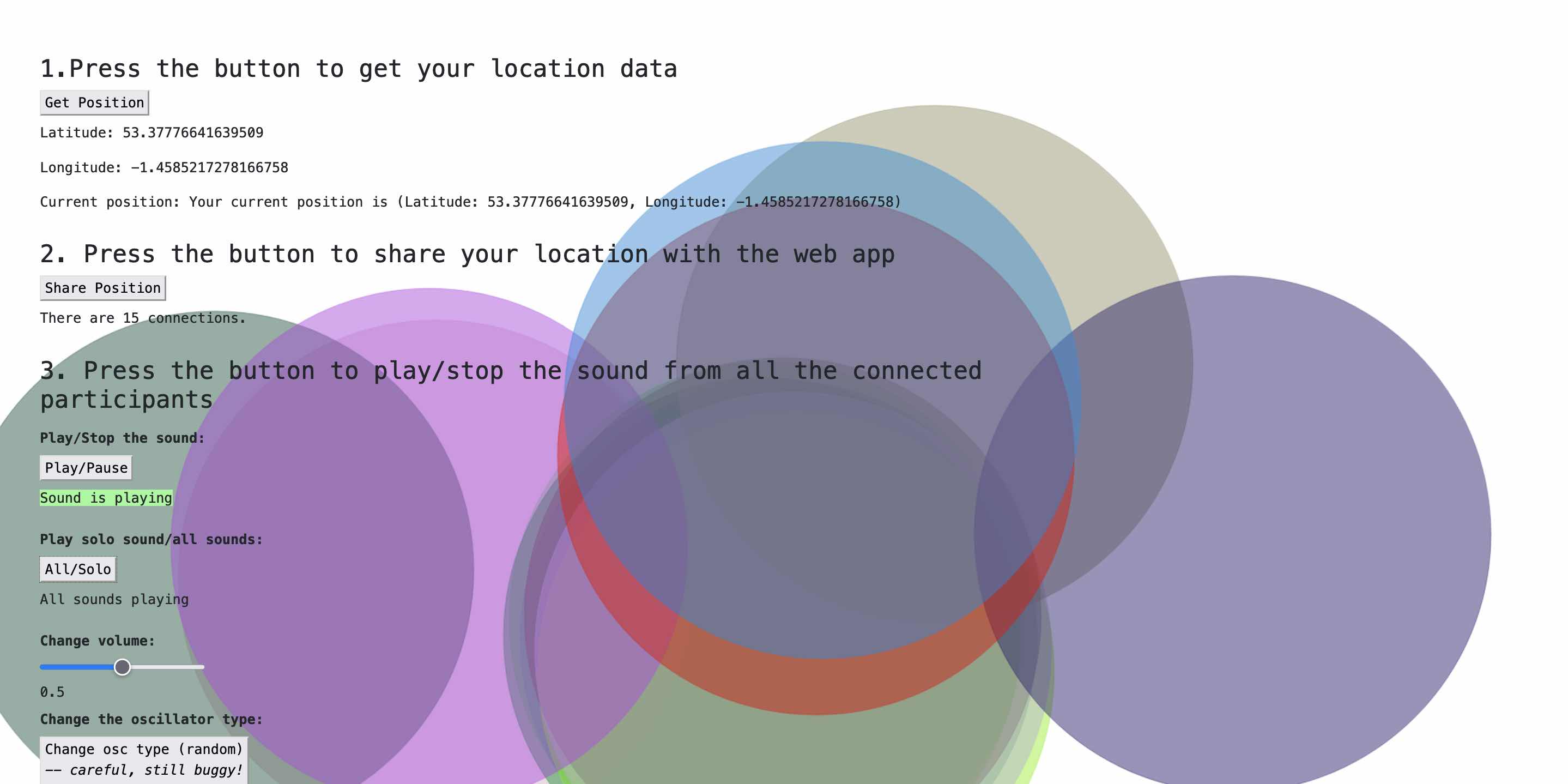Rapid Prototyping With Online Pilot Testing

In June 2022, Visda Goudarzi (Co-I), Abbey Young (research assistant) and I (PI) have been running three online pilot studies allowing participants to (1) try a new mobile web app for telematic performance; (2) participate musically in performance (and not only via the typical online chat); and (3) shape the future of how mobile web apps for audience engagement should look like. In this blog post, I would like to reflect on the experience of running online pilot studies in combination with rapid prototyping techniques to incorporate the feedback obtained from the participants in the next iteration of the prototype.
The conditions to participate in one of the three pilot studies were that anyone from anywhere in the world could participate as long as they had access to an internet connection, and a mobile phone or a laptop/desktop computer. The participants were asked to participate in a network music performance by Visda Goudarzi and me to then fill in a post-questionnaire with questions about the level of interaction with the web app, level of engagement, and perception of the participation, among others. Each participant was offered a £20 love2shop voucher after they participated in the study.
We recruited 30 participants in total throughout the three pilot studies who participated with the mobile app during our performance and gave us feedback via the online post-questionnaire. The results have been that thanks to the feedback from the users, we have been able to improve both the conditions of the online pilot studies and the web app. We initially started combining Zoom for communicating with the participants with Twitch for the live performance streaming to then realise that it was better to use one platform only and that Zoom worked well for this. This informs the importance of offering smooth and consistent digital experiences when working on technologies for living in a digital society and hybrid spaces.
Regarding the web app, the participants’ feedback was instrumental to improve its design and solve the reported technical issues. A lesson learned is that it’s important to always run a pilot study with colleagues before going to the real pilot world! Altogether, the rapid prototyping approach (or mini summer of code) has been hectic but also useful to get a more stable version of the web app. The dedicated work of Abbey Young dealing with the participants has been crucial for the success of the project, so Visda and I have focused on the complex performance setup and myself on the development of the web app.
Here’s a quick demo of the version resulting from the three pilot studies:
You can find the code of the web app at the following repository:
This work connects with the paper and performance that we have presented at the New Interfaces for Musical Expression 2022 conference in June 2022 (see my blog post Presence at NIME 2022), which was produced with an earlier version of the web app.
Acknowledgements
Thanks to Visda Goudarzi and Abbey Young for their work on this project and Leigh Landy for his mentor role. Thank you to Gerard Roma for his technical support and guidance. This study has been ethically approved by De Montfort University (DMU)’s Research Ethics Committee (CEM ID C451429) following DMU’s Research Ethics Code of Practice and is funded by DMU’s ‘Living in a Digital Society’ 2022 ‘Spotlight’ Funding Application with special thanks to Gabriel Egan and Gaia Rossetti for believing in and supporting the project.